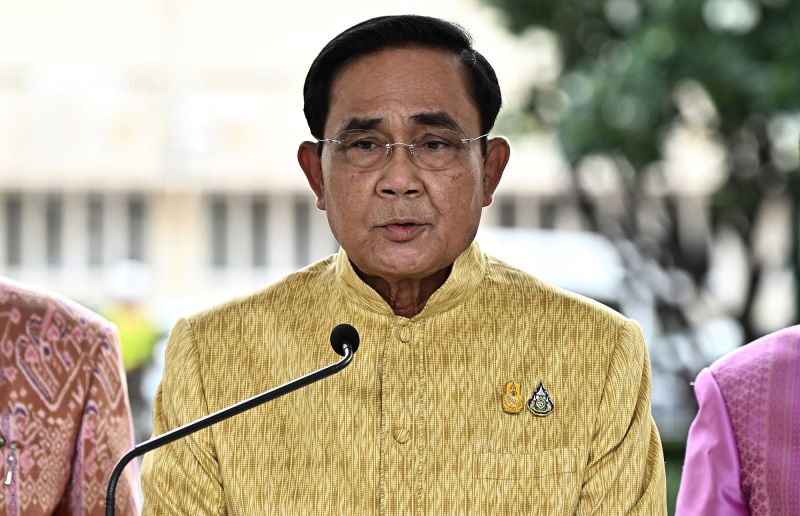Thailand’s Prime Minister Prayut Chan-o-cha will not seek re-election and will retire from politics, his party said Tuesday.
The announcement came two days before Thailand’s parliament was set to vote for a new prime minister following a May election that saw Thais overwhelmingly reject military-backed rule.
Prayut, 69, has ruled Thailand since 2014, when as army chief, he seized power in a coup and declared himself prime minister. In 2019, his party’s coalition won the most seats in parliament and he was elected leader with the backing of the senate.
Thai opposition parties swept the board in May’s nationwide election as voters delivered a powerful rebuke of the military-backed establishment that has ruled since the coup, capping years of rising anger over how conservative cliques have governed the kingdom.
The progressive Move Forward Party, which gained a huge following among young Thais for its reformist platform, won the most seats and the largest share of the popular vote.
Pheu Thai, the main opposition party that has been a populist force in Thailand for 20 years, came second.
Prayut was not expected to gain enough support in the lower house to win another term as premier, as his party only won 36 seats in the May election – though the final outcome still remains uncertain.
Prayut will remain as prime minister until the new government is formed.
The former general’s rule as a military coup leader turned prime minister has been marred by growing authoritarianism and widening inequality.
In 2020, young people across the country took to the streets and called for Prayut’s resignation. The mass protests stemmed from failed promises to restore democracy, and what activists say is a repression of civil rights and freedoms.
His government’s handling of the coronavirus pandemic and economy, nepotism and lack of transparency and accountability, also amplified calls for Prayut to step down.
Thitinan Pongsudhirak, political scientist and director of the Institute of Security and International Studies at Chulalongkorn University, said Prayut’s retirement “represents the defeat of the military regime that has been in power over the past nine years since the coup in 2014,” and could be seen as a “boost to pro-democracy supporters.”
“To many Thais, Prayut’s departure from politics is overdue. He seized power in May 2014, ran a lackluster military government for five years and another rickety elected government since 2019 thanks to a military-arranged constitution,” Thitinan said.
“Thailand has seen signs of economic stagnation, political decay and its lowest international standing ever.”
It could potentially help Move Forward’s leader Pita Limjaroenrat and his chances to form a post-election government, Thitinan added.
